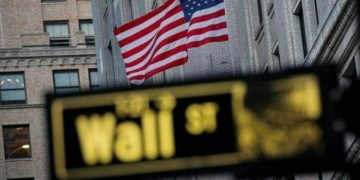NEW YORK: The dollar ended steady to modestly higher on Wednesday, hitting a three-week high against the yen, as Federal Reserve officials saw the likelihood of two more interest rate increases for a total of four in 2018 based on a solid economic outlook.
The greenback’s bounce tied to the Fed’s perceived hawkish stance faded as traders booked profits in advance of the European Central Bank’s meeting on Thursday, where policy-makers may discuss the timing of winding down its 2.55-trillion-euro bond-purchase program.
“It’s the nature of a volatile market we are facing now. Europe ultimately has a bit more to worry about than we do,” said Juan Perez, currency trader at Tempus Consulting in Washington.
The US central bank as expected lifted key overnight borrowing costs by a quarter percentage point for a second time this year, to between 1.75 and 2.00 percent. It also ended its pledge to keep rates low enough to bolster the economy for “some time” and signaled it would tolerate above-target inflation at least through 2020.
“The probability attached to two more hikes is likely to rise and push the dollar higher in tandem,” said Daragh Maher, head of US FX strategy at HSBC Securities USA in New York.
In late trading, the dollar was flat against the yen at 110.50 yen after touching a three-week peak at 110.84 shortly after the release of the Fed’s latest policy statement.
The greenback finished 0.44 percent lower versus the euro at $1.1795.
Some traders speculate the ECB may offer clues on its intentions to begin tapering its bond purchases this year at its upcoming meeting, while other traders reckon ECB officials may refrain from signaling changes to its stimulus program given Italy’s fragile political situation and a recent spate of disappointing data in the euro zone.
The dollar was steady against sterling at $1.3381 and ended modestly stronger against the Swiss franc and Canadian dollar.
Some emerging market currencies weakened versus the dollar on the possibility of a Fed rate hike, while others rose. Some developing countries with large external financing needs are particularly vulnerable to rising dollar funding costs.
The Turkish lira was down over 1 percent at 4.6485 per dollar, while South Africa’s rand firmed nearly 0.1 percent at 13.3192 per dollar.
Source: Brecorder

























